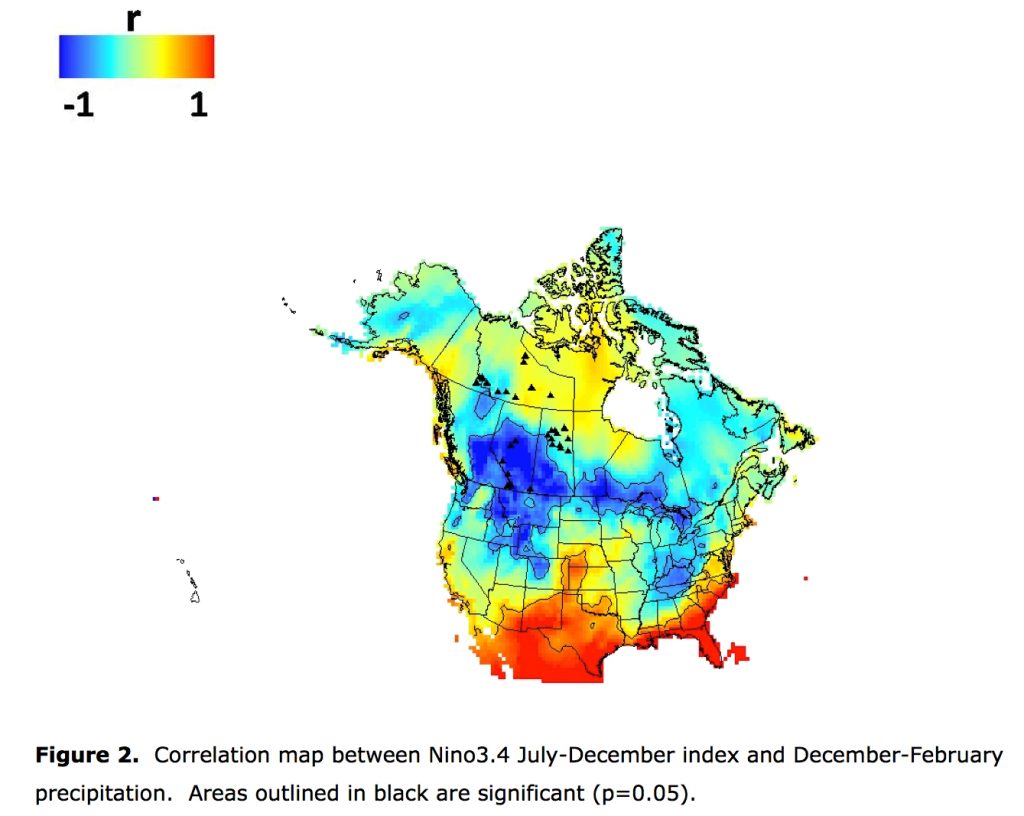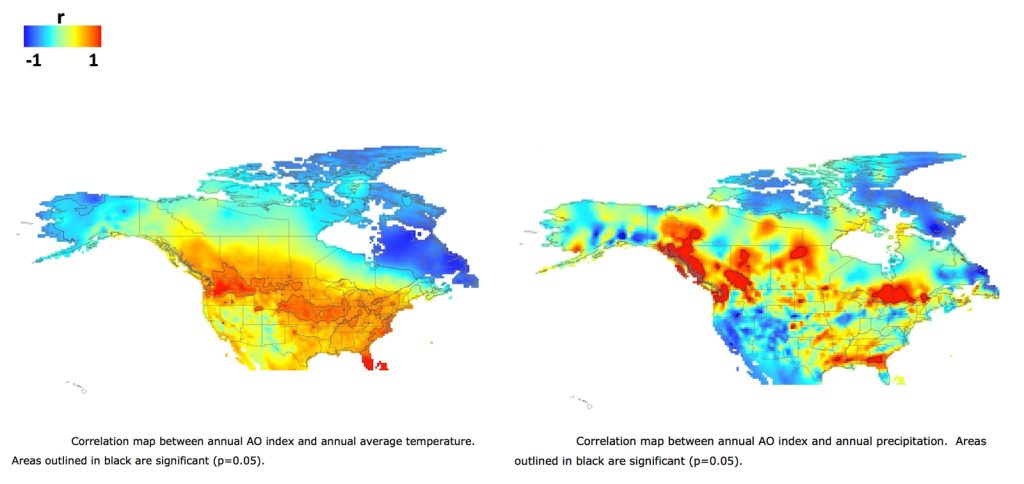The Alberta Water Research Institute commissioned Suzan Lapp and Stefan Kienzle of the University of Lethbridge to provide an improved understanding and appreciation of the impacts of large scale and long-term climate cycles on Alberta. These include Pacific Decadal Oscillation (PDO), and El Nino-Southern Oscillation (ENSO), and Arctic Oscillation (AO).
The Pacific Decadal Oscillation (PDO) is the dominant mode of sea surface temperature variability in the North Pacific Ocean, and is one of the main drivers of winter temperature and precipitation in the Pacific Northwest.
In addition, the low-frequency PDO shifts phases on an inter-decadal time scale, usually at about 20 to 35 years from warm to cool phases (eg: in 1890 and 1947 and from cool to warm in 1925 and 1977).
A strong negative relationship exists between the PDO and streamflows in south and central Alberta. Therefore, these regions are wetter when the PDO is in its negative phase, and drier when the PDO is positive. The influence is particularly strong in southern Alberta and weakens towards central and northern Alberta, but the impact is still evident.
The higher frequency El Nino-Southern Oscillation (ENSO) also affects the hydroclimatology of southern and central Alberta.

Precipitation and streamflow are decreased during El Niño events, and increased during La Niña events. The negative phase of the PDO and El Niño typically produce cooler and wetter winters in the Pacific Northwest region. Conversely, the positive phase of the PDO and La Niña typically produce warmer and drier winters in the Pacific Northwest region.

The Arctic Oscillation (AO) is a measure of the intensity of the polar vortex and is closely related to (if not the same as) the North Atlantic Oscillation (NAO).
A negative relationship exists between southern Prairie winter precipitation and the NAO, as the positive NAO (and AO) allows more frequent outbreaks of cold dry Arctic air to the southern Canadian prairies (click chart – right).
Based on the wide range of projected PDO, ENSO and NAO indices from the various Global Climate Models for the early 21st century, it is difficult to make any concrete statements about the future hydroclimate of Alberta.
Overall, these models did a poor job showing the teleconnection between ENSO and PDO (the interaction between Tropical and north Pacific sea surface temperatures) suggesting that the models are not capturing the large scale interactions between the ocean and atmosphere. However, a new suite of models may be available (summer 2011) that may provide better insights to future large scale indices. It is interesting to note that the streamflow trend analyses, regardless of the projected indices, are generally showing a decline in available surface water for the 21st century for Alberta that may lead to severe water shortages.
Contact us, if you have a question for Suzan Lapp and Stefan Kienzle on the report Impacts of Long-term Climate Cycles on Alberta.